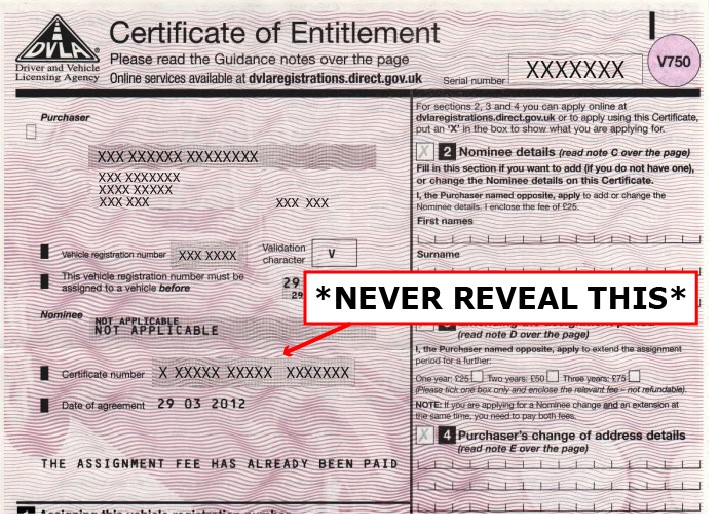Last Updated on: 22nd November 2023, 07:48 am
Concerns have been raised by experts over the burgeoning trend of motorists falling prey to scams while buying and selling personalised number plates through social media platforms.
Motorists are being urged to exercise caution when listing their UK private plates for sale on social media buying and selling groups, as the incidence of fraudulent cases is on the rise. With potential losses amounting to hundreds or even thousands of pounds, victims are at risk of financial exploitation.
Plates4Less, an entity under VRM Swansea dedicated to private number plate transactions, has divulged the top three scams that perpetrators are employing. Moreover, the platform has crafted a comprehensive guide to empower motorists to shield themselves from falling victim to these ploys.
There are three distinct types of scams that warrant vigilance:
- Bait and Disappear: A well-meaning buyer posts a wanted advertisement. A scammer swoops in with an enticing offer, and the transaction unfolds in private channels. Unfortunately, the buyer never receives the coveted number plate and is left out of pocket.
- Ownership Duping: A fraudster posing as a buyer persuades a seller to relinquish their certificate of ownership before any payment is made. The scammer then vanishes without concluding the deal.
- Faux Ownership Listings: Scammers craft listings for plates they do not legitimately own, often deploying another person’s proof of entitlement to assert ownership.
Plates4Less, headquartered in Swansea, is an established hub facilitating the sale and purchase of private number plates across the UK and Northern Ireland. Antony Clark, the Marketing Manager of Plates4Less, conveyed, “Instances akin to these are becoming increasingly common, and their occurrence appears to be escalating. Buyers should exercise meticulous diligence to ascertain the seller’s legal ownership of the registration mark before parting with their money.”
Clark advised, “Whenever possible, buyers should endeavour to conduct transactions in person. If an offer appears excessively advantageous, it’s prudent to exercise caution.”
The uptick in these scams can, in part, be attributed to alterations in government protocols. Individuals possessing a valid certificate number can promptly assign a registration mark to their vehicle, unburdened by the constraint of personal association with the mark. Thus, posting a certificate online or encountering email breaches poses considerable jeopardy, as scammers can exploit or vend the information.
Often, victims discover their private number plate has been misappropriated when they attempt to employ it, only to find it allocated to another vehicle.
Plates4Less has issued the following protective recommendations for private number plate holders:
- Image Confidentiality: Refrain from sharing images of certificates online.
- Document Preservation: Safeguard physical documentation in a secure location, revisiting it every six months to verify its validity.
- Email Monitoring: Regularly monitor email accounts to detect any unauthorized access by scammers.
- Reputable Intermediaries: Engage trustworthy, registered intermediaries for plate sales or valuations. Scrutinise reviews on third-party websites to establish credibility.
Clark further advised, “For the welfare of all parties involved, we advocate the use of a dependable and officially registered intermediary, such as Plates4Less, for secure financial and goods transactions. We offer a secure and pleasant experience for both buyers and sellers. Transparency is guaranteed, ensuring everyone receives what they’ve paid for at a fair price.”



